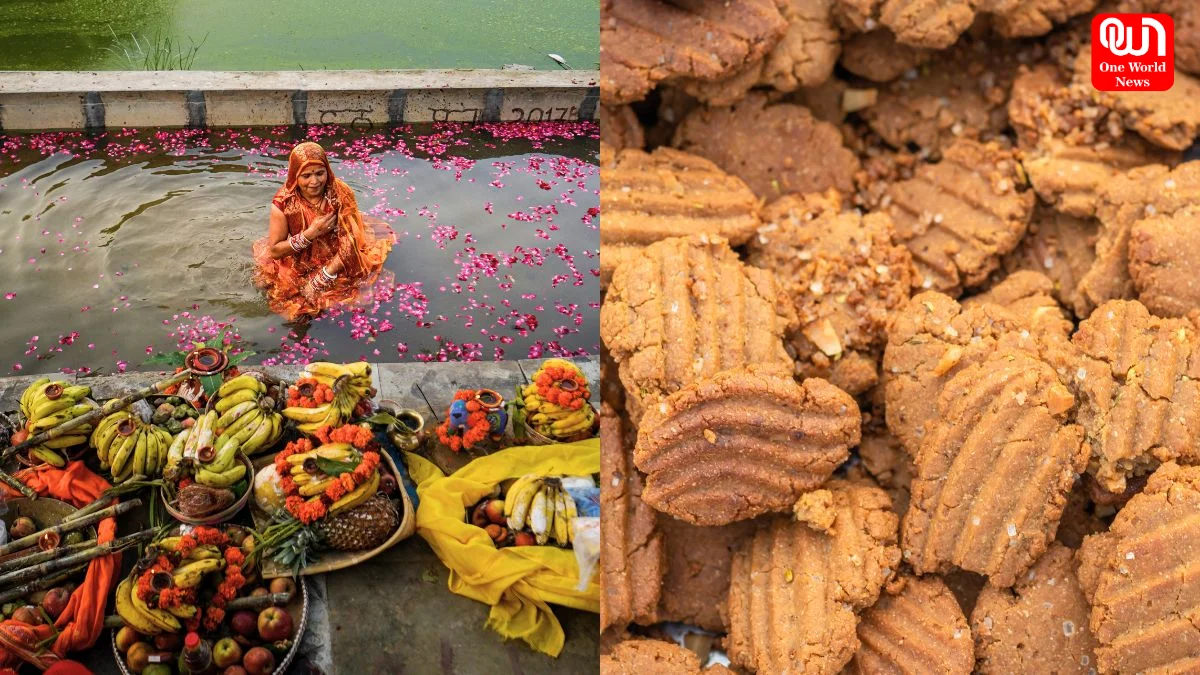Thekua, Fruits, and Offerings: Exploring the Spiritual Symbolism Behind Chhath Puja
Discover the significance of Thekua, fruits, and offerings in Chhath Puja, exploring their deep symbolism and spiritual importance during the festival.
Thekua, Fruits, Offerings: Understanding the Deep Symbolism Behind Chhath Puja Offerings
Introduction to Chhath Puja and Its Offerings
Chhath Puja is one of the most revered festivals in India, celebrated with immense devotion primarily in Bihar, Jharkhand, Uttar Pradesh, and parts of Nepal. The festival is dedicated to Lord Surya, the Sun God, and Chhathi Maiya, honoring the divine forces of nature. Devotees observe strict rituals, including fasting, holy bathing, and presenting carefully prepared offerings. These offerings, including Thekua and a variety of fruits, are not just festive delicacies but carry deep spiritual symbolism that reflects gratitude, purity, and devotion.
Thekua: A Sweet Symbol of Devotion
Thekua is an essential offering during Chhath Puja, made primarily from wheat flour, jaggery, and ghee. Its preparation is considered a sacred act, as the dough is kneaded with love and devotion before being shaped and deep-fried to perfection. Symbolically, Thekua represents selflessness, as it is prepared without any artificial additives and offered to the Sun God as a mark of pure devotion. The sweet taste of Thekua signifies the sweetness of life and the fulfillment of wishes. Its hard texture also symbolizes resilience and the strength required to sustain faith and devotion through life’s challenges.
Fruits: Nature’s Offering
Fruits play a crucial role in Chhath Puja offerings. Common fruits like bananas, apples, coconuts, and seasonal varieties are arranged meticulously in baskets for the ritual. Each fruit has symbolic meaning; for instance, bananas signify prosperity and abundance, coconuts represent purity and selfless giving, and seasonal fruits reflect gratitude towards nature for its bounty. The freshness of fruits symbolizes life, vitality, and the cyclical nature of existence. Offering fruits is a gesture of acknowledging nature’s gifts while seeking blessings for health, happiness, and prosperity.
The Ritual of Arranging Offerings
Arranging offerings during Chhath Puja is not merely a decorative task but a spiritual exercise. Devotees place Thekua, fruits, and other items like sugarcane, lotus, and water in a traditional manner on bamboo trays or plates. Each item’s placement and orientation carry symbolic meaning, reflecting balance, harmony, and respect for natural elements. The meticulous arrangement of offerings signifies the devotee’s discipline, patience, and focus, essential virtues in spiritual practice.
Read more: Celebrating Bridge Day: A Thrilling Tribute to Adventure and Community
Water and River Symbolism
Water, particularly from rivers or clean sources, is an indispensable part of Chhath Puja offerings. Devotees offer water to the Sun God, symbolizing purity, cleansing, and life-giving energy. The flowing river represents continuity, renewal, and the eternal cycle of creation. Water offerings remind devotees of their connection with nature and the divine, reinforcing the concept of humility and gratitude.
The Spiritual Significance of Offerings
Every Chhath Puja offering, from Thekua to fruits, embodies deep spiritual meaning. They are acts of devotion, conveying respect, gratitude, and surrender to higher forces. Thekua represents selfless effort and inner strength, fruits symbolize abundance and health, and water embodies purity and life. Collectively, these offerings create a sacred atmosphere, enhancing the devotee’s spiritual focus and devotion during the rituals.
Community and Cultural Significance
Chhath Puja offerings are not only spiritual but also social symbols. Preparing Thekua and arranging fruits often involve family members and the community, fostering unity, cooperation, and cultural continuity. Sharing prasad, especially Thekua, after the rituals spreads blessings and strengthens social bonds. The festival and its offerings thus transcend religious devotion, promoting communal harmony, respect for nature, and cultural heritage.
Read more: Celebrate Love and Kindness on Sweetest Day: A Heartwarming Tradition
Conclusion: More Than Just Food
Thekua, fruits, and other offerings in Chhath Puja are more than ceremonial items; they are symbolic expressions of devotion, gratitude, and spiritual discipline. Each element, from the sweet Thekua to the vibrant fruits, reflects a deep connection with nature, community, and the divine. Understanding the symbolism behind these offerings enriches the celebration, allowing devotees to experience Chhath Puja not just as a ritual, but as a profound spiritual journey that honors life, purity, and devotion.
We’re now on WhatsApp. Click to join.
Like this post?
Register at One World News to never miss out on videos, celeb interviews, and best reads.








